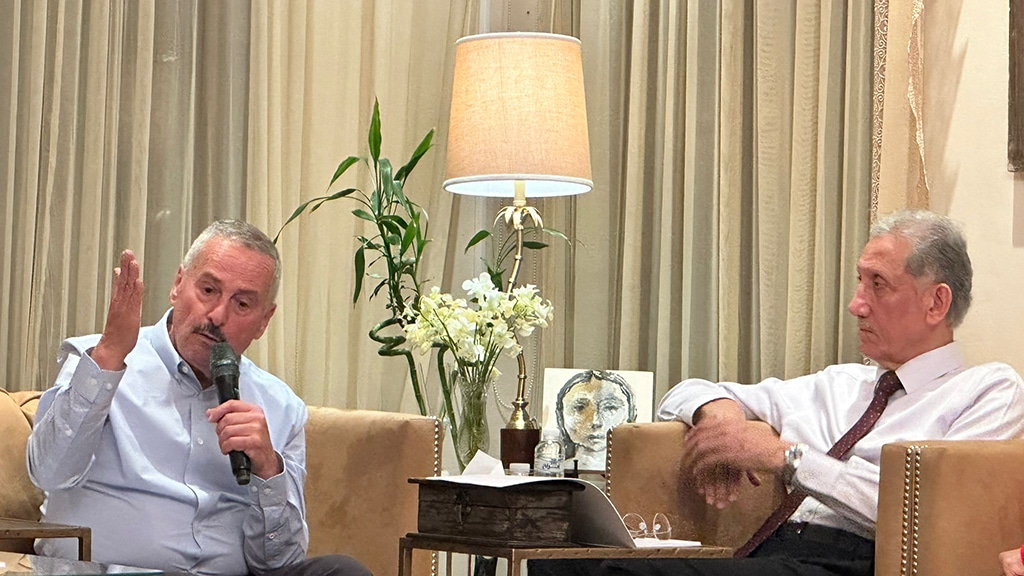By Faten Omar
KUWAIT: Lebanese journalist and researcher Hamza Olayan discussed on Sunday the history of minorities in Kuwait in his books during a cultural meeting organized by Kuwaiti journalist and writer Taleb Al-Refai. "There is no unified, agreed-upon definition of the concept of the word 'minority'. It is often indicated to a religious, linguistic or ethnic group whose 'number' is less than the number of the population," Olayan said.
Olayan revealed there are main pillars of the Declaration on the Rights of Minorities from the United Nations' point of view, including the right to enjoy their culture, to declare and practice their religion, and to use their language. "In my published book about the history of Christians, Jews and Armenians in Kuwait, I aim to help understand the history of these groups and how Kuwaiti society accepted them. If we look at article 35 of the Kuwaiti constitution in the section on public rights and duties, we will find satisfactory and sufficient answers in this regard," he said.
Regarding Jews in Kuwait, Olayan stated: "The experience of Jews in Kuwait acquired a special dimension, especially after Saleh and Daoud Al-Kuwaity, who were Kuwait-born Jewish musicians who gained great fame that transcended the borders of Kuwait. I wrote a book, which is a university study of the history of Jews in Kuwait. The Jews practiced their beliefs and prayers without being judged. Their number did not exceed 100, and they lived in peace in Kuwait. They left Kuwait gradually from the beginning of the forties till the end of the fifties."
As for the Christian community, Olayan said: "When we started preparing the material for the book about Christians, we set up an action plan after reading the history of Christians and churches in Kuwait. We found a lot of mistakes and missing information in the narratives, so around 29 Arabic and English books were collected related to the subject, in addition to studies and theses to be published."
"There is a realistic recognition that Kuwait provided all needs to the Christian clergy, who praised it. They considered this as one of the forms of tolerance that distinguishes this society from the rest of its Gulf peers," he said. "Kuwait appeared on the world map with its embrace of Christian denominations and its commitment to freedom of belief and religions, which it is keen on and committed to, according to what is stated in the articles of the constitution since the early sixties," he added.
About the Armenian minority, Olayan indicated that his book about Armenians in Kuwait focused on the social aspects and the circumstances of the migration of the community. "I focused on the history of the diplomatic relationship between Kuwait and Armenia. As a matter of understanding the issue, we stopped at the Armenian language, which preserved the identity and cohesion of these people in the face of the challenges they faced since the great migration after the massacres of 1915," he pointed out.
"I always sought to meet Armenian personalities to learn about the community. I established good relations with Armenian bishops and several other businessmen and members of the community who live in Kuwait. The book answers the history of the presence of this community since the forties of the last century in a country that embraced and loved them. It is the first book of its kind in the Arabic language," Olayan said.











